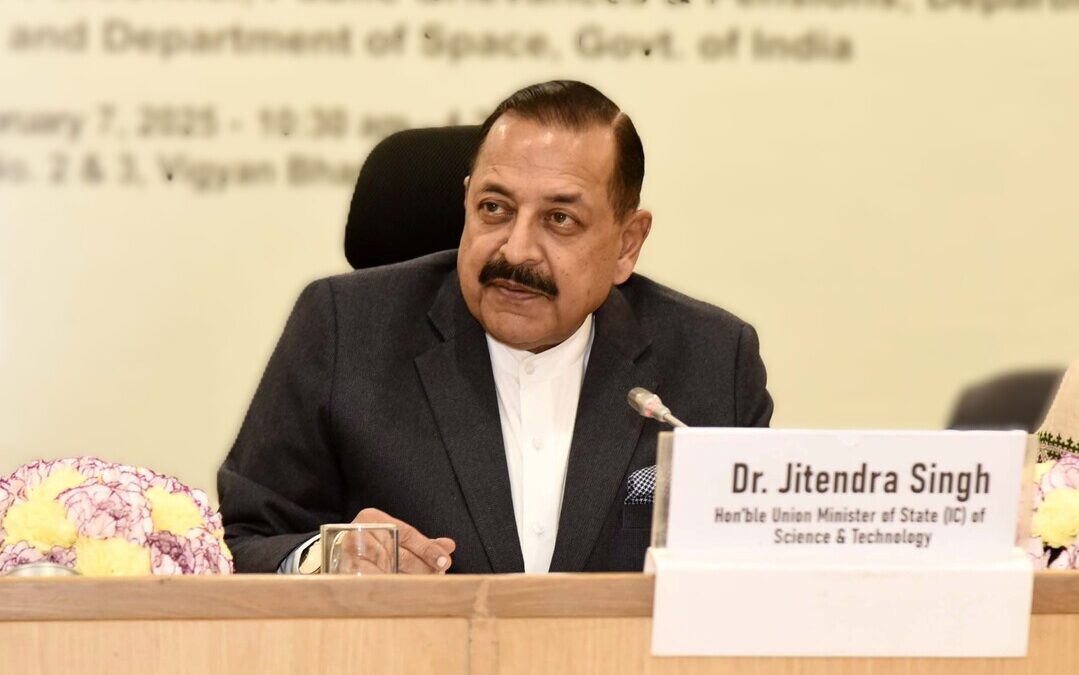India Unveils 1st Indigenous Automated Biomedical Waste Treatment Plant
India launches Srjanam, its first automated biomedical waste treatment plant, to revolutionize eco-friendly healthcare waste disposal.
In a significant step toward sustainable healthcare waste management, India on Monday launched its first indigenous automated biomedical waste treatment plant at the All India Institute of Medical Sciences in New Delhi.
The facility, named Srjanam, was officially dedicated to the nation by Union Minister for Science and Technology Dr. Jitendra Singh, marking a milestone in the country’s efforts to modernize medical waste disposal.
Developed by the Council of Scientific and Industrial Research’s National Institute for Interdisciplinary Science and Technology in Thiruvananthapuram, Srjanam aims to transform biomedical waste management in Indian healthcare facilities.
The technology offers an eco-friendly alternative to traditional incineration methods, significantly reducing environmental hazards.
“India’s transition from a fragile economy to a major global player is reflected in our advancements in science and technology,” Dr. Singh said at the launch event. “This biomedical waste treatment rig is not just a technological achievement but a step toward a cleaner and more sustainable healthcare system.”
A Safer, Sustainable Approach to Waste Disposal
Biomedical waste — including contaminated disposables, lab samples, and fluids like blood and urine — poses significant health and environmental risks if not treated properly.
The Srjanam rig is designed to disinfect pathogenic waste without incineration, using an advanced decontamination process that eliminates harmful microorganisms.
Unlike traditional methods, which emit toxic fumes and carcinogens, Srjanam neutralizes waste efficiently while imparting a fragrance to counteract foul odors.
With a daily treatment capacity of 400 kilograms, Srjanam can currently process up to 10 kilograms of degradable medical waste per day. Once it clears final regulatory approvals, the technology is expected to scale up for widespread implementation in hospitals nationwide.
Addressing India’s Biomedical Waste Crisis
According to the Central Pollution Control Board, India generates approximately 743 tonnes of biomedical waste daily. Much of it is incinerated or improperly disposed of, leading to severe health risks.
Dr. Singh emphasized that inadequate segregation, open dumping and unsafe disposal practices contribute to spreading infections and antimicrobial resistance.
“We must shift our perspective from ‘waste management’ to ‘waste transformation,” Dr. Singh said. “This initiative ensures a safe and efficient system that minimizes human exposure and reduces environmental damage.”
The Srjanam technology has undergone third-party validation for its antimicrobial action, and researchers claim the treated waste is safer than organic fertilizers such as vermicompost.
Government’s Vision for Science and Innovation
The unveiling of Srjanam aligns with the Indian government’s broader agenda to promote sustainability and technological innovation.
Dr. Singh highlighted a series of recent advancements, including India’s first indigenous DNA vaccine, the HPV vaccine for cervical cancer, and the country’s first gene therapy trial for hemophilia.
During his address, he outlined the government’s priorities for the first 100 days, including the approval of India’s first Bio E3 policy, a ₹1,000-crore Viability Gap Fund for space startups, and a ₹50,000-crore investment in the Anusandhan National Research Foundation.
The recently proposed Union Budget has also earmarked ₹20,000 crore to develop Bharat Small Modular Reactors.
Dr. Singh also stressed the importance of academic collaboration and proposed that postgraduate students be co-guided in exchange programs to foster innovation and knowledge-sharing.
A Step Toward a Sustainable Future
Senior government officials, including AIIMS Director Dr. M Srinivas, CSIR Director-General Dr. N. Kalaiselvi and NITI Aayog Member Dr. VK Paul, attended the launch event.
With India aiming for a Viksit Bharat (Developed India) by 2047, technological advancements like Srjanam are expected to play a crucial role in driving the country’s sustainability goals. “With continued progress in green technology and healthcare innovation, India is poised to become a global leader in environmental solutions,” Dr. Singh said.
Also Read:
IIT BHU Develops Solar-Powered Microwave Reactor for Sustainable Waste Management

